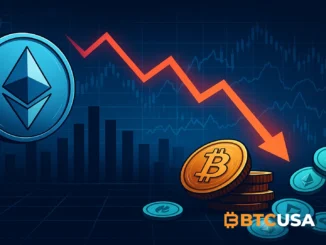Russia’s New Crypto Law: Key Highlights
Russia has finally given a new turn to its policy on digital assets, with landmark legislation that regulates cryptocurrency. Federal law, signed by President Vladimir Putin, provides legal recognition of digital currencies as property and introduces a framework of detailed taxation for mining and transactions. The law thus hopes to provide clarity to the ever-emerging crypto sector while dealing with the challenges of Russia’s energy crisis.
Tax Rates and Exemptions
According to the new law, cryptocurrency turnover will be progressive:
Transaction Tax: 13% tax applies if the annual earnings do not exceed 2.4 million rubles, while the rate goes to 15% if earnings surpass this threshold.
Operational Compliance for Miners
The law requires that operators of mining infrastructure report their services and information about their clients to the state authorities. They are required to file reports electronically quarterly and before the 25th day of the month following the reporting period. Those who fail to comply will be fined 40,000 rubles.
Mining VAT Exemption: Mining is exempted from value-added tax.
Income Tax on Mining: Income derived from mining, in nature, shall be subject to income tax at market value. Miners, however, can deduct the expenses of mining from their taxable profits.
The corporate profit made from mining is taxed at a standard corporate tax rate, which will rise to 25% in 2025. However, simplified taxation regimes are not applicable for entities involved in mining or selling crypto.
Digital Currencies Recognized as Property
The new legislation classifies digital currencies as property, a move that legalizes their status in Russia. This covers those cryptocurrencies that may be used in foreign trade under the ELR for digital innovation. The ELR equally permits the use of digital assets for cross-border transactions and further embeds crypto into the financial framework of Russia.
Challenges Amid an Energy Crisis
While the law brings much-needed regulatory clarity, energy shortages in Russia are a more significant challenge. The government is mulling the restriction of mining activities in power-strained regions like Irkutsk, Luhansk, and Donetsk. The restrictions might be in place until 2031 and will directly affect miners who rely on subsidized electricity in the affected areas.
Impact on the Industry
The major crypto exchanges have seen an 8% increase in traffic due to the legislation. However, energy restrictions might limit the development of mining projects, especially for companies like BitRiver that rely on cheap energy. The new law will nonetheless lead to greater adoption and innovation within Russia’s crypto ecosystem.


